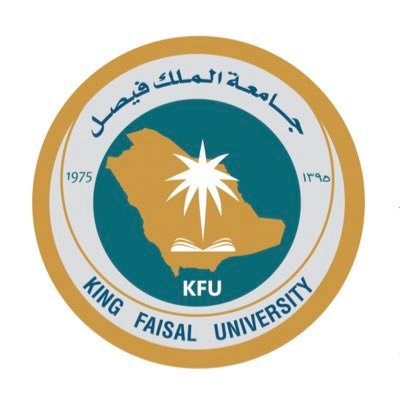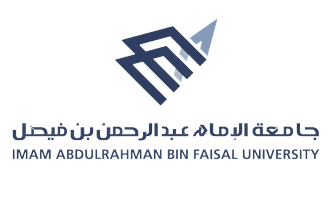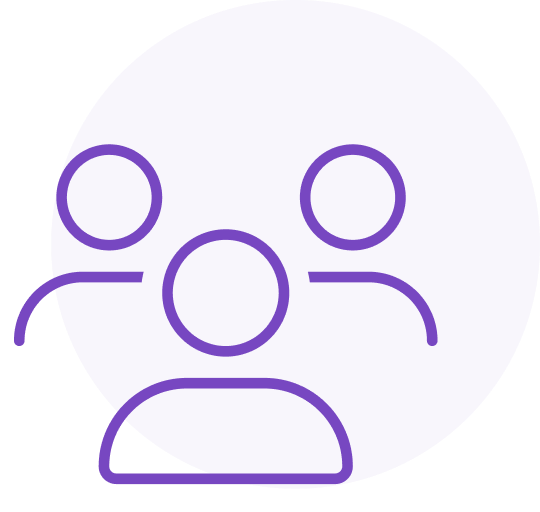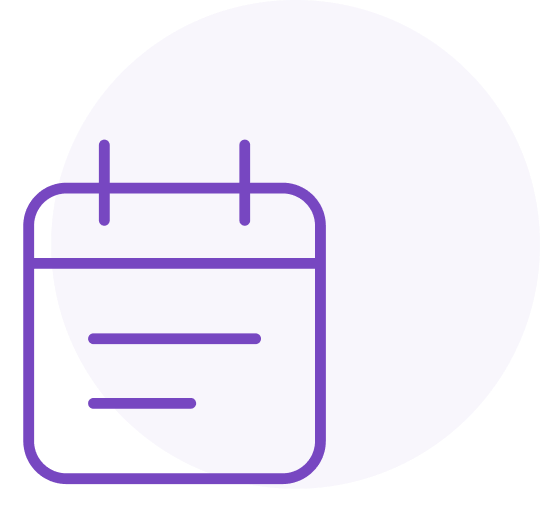The certificate is a recognition of the recipient's ability to control the quality of eLearning by developing the knowledge and skills necessary to assess the entire eLearning system or part of it, in addition to facilitating the necessary changes to ensure that teachers and learners have an eLearning experience that meets quality standards in eLearning.
Requirements:
Click on the appropriate option for your qualifications:
*Year: Includes the academic year in its entirety.
How to obtain the certificate:
- Create an account on the Professional Certificate website.
- Upload the required certificates and documents, ensuring they are valid, up-to-date, and clear.
- Choose the appropriate location for the exam via the website and pay the fee.
- Wait for the application to be checked and reviewed.
- Pass the exam.
- Get the certificate
Continuous Professional Development:
Professional developments can be uploaded through the applicant's profile (such as attending conferences, meetings, lectures, or seminars, participating in workshops, online or in-person training, submitting and participating in research or scientific papers, or training packages) periodically on an annual basis to ensure the continuity of the certificate validity.
You can enroll in the Induction Program of the Professional Certificate in eLearning Quality Assurance here:
* Note: The program serves as an introductory guide for the competencies of the professional certificate and is not the sole reference for them. It provides you with the fundamental concepts to assist you in further research and exploration of various resources
Target Audience
- Quality Assurance Specialists in eLearning.
- Evaluators and arbitrators of eLearning programs.
- Educational supervisors and school principals.
Fees
1500 SR
Certificate Validity
Four years starting from the date of issuance
You can also enroll in one of the training courses offered by the following training institutions:

King Faisal University

Imam Abdulrahman bin Faisal University
Competencies:
Training is conducted according to specific competencies that the applicant acquires after being trained and qualified by one of the training institutions accredited by NeLC.
6
Domains
19
Competencies
73
Indicators
1.1 Digital Tools and Apps
1.1.a: Skill in ensuring staff members are trained to develop and deliver the eLearning program's digital tools and apps within and outside the platform to continuously improve their performance.
1.1.b: Skill in identifying and implementing ongoing training opportunities for educators to improve their use of the eLearning program’s technologies, software products, and media.
1.1.c: Skill in building an eLearning environment that emphasizes innovation and supports the active exploration of digital and emerging tools both within and outside the eLearning program’s platform. 1.1.d: Skill in troubleshooting the eLearning program’s system, platform, and processes for reliability, usability, and performance, including providing Level 1 support and reporting troubles to IT.
1.2 Digital Citizenship
1.2.a: Skill in modeling best practices and behaviors by leading the way in creating a professional, legal, safe, and ethical digital footprint for other stakeholders to learn, follow and aspire to.
1.2.b: Skill in implementing and assessing a formal technology plan that effectively manages and protects data, implements electronic security 13 measures, and includes provisions for a scalable and responsible technical infrastructure.
1.2.c: Skill in formulating, maintaining, and assessing academic honesty and ethical aspects to ensure the reliability of the eLearning program.
1.3 Digital Resources
1.3.a: Skill in modeling how digital resources and other educational technologies can support and enhance educational best practices.
1.3.b: Skill in evaluating, approving, assessing, and securing appropriate instructional materials and digital tools to support, enhance, and ensure a high-quality eLearning program.
Leadership
2.1 Data and Analytics
2.1.a: Skill in encouraging and enabling educators to use data to plan their online teaching/training, learning, reporting, and assessing with a focus on improving learner outcomes.
2.1.b: Skill in identifying and using metrics to guide decisions related to the eLearning program's improvement, infrastructure needs, and alignment to its goals and mission.
2.1.c: Skill in analyzing learner academic achievement, stakeholder surveys, learner profiles, course access and drop rates, and other performance metrics to evaluate the eLearning program's effectiveness.
2.2 Planning
2.2.a: Skill in identifying, implementing, and evaluating written policies or procedural guidelines for learners (including those with disabilities) and in ensuring that learners are informed about the services available to them.
2.2.b: Skill in developing and administering policies and processes that are updated and reviewed consistently, including pre-defined regulations covering all phases of the learner life cycle (admission, progression, recognition, and certification).
14 2.2.c: Skill in continuously improving quality assurance and other plans and systems through periodic reviews, streamlining of functions, policies, regulations, and procedures of the eLearning program.
2.2.d: Skill in identifying, implementing, evaluating, and adhering to policies designed to support the institutional effectiveness of the eLearning program and in assessing the program for its compliance.
2.2.e: Skill in developing practices that ensure trust among educators, staff, and other stakeholders, including the legal, ethical, and professional conduct of all subcontractors used in the eLearning program.
2.2.f: Skill in articulating, monitoring, assessing, and updating the roles and responsibilities of all eLearning staff.
2.2.g: Skill in establishing practices for enrollment growth and learner retention initiatives.
2.2.h: Skill in setting plans to develop, assess, and update policies for quality assurance that are made public, involve stakeholder input, and form part of the eLearning program's strategic management plan.
2.2.i: Skill in managing resources and budgets responsibly and in accordance with applicable regulations, including frequently reviewing financials and ensuring cyclical audits.
2.2.j: Skill in developing, assessing, sustaining, and expanding the eLearning program's course offerings, including planning documents linked directly to the budget and results of a needs analysis.
2.2.k: Skill in determining the instructional capacity, resource needs, academic strengths, and priorities of the institution's eLearning program and in identifying opportunities to extend the online program across the institution.
2.2.l: Skill in planning, promoting, and facilitating quality eLearning training programs aligned with industry demands.
15 2.2.m: Skill in task delegation and confidence-building in subordinate leaders and/or quality assurance officers and in implementing plans for succession or promotion in key management positions.
2.2.n: Skill in assessing and adhering to the rules and regulations as they pertain to various funding sources for the eLearning program, such as financial aid, grants, contracts, tuition, and fees.
3.1 Online Learning Design
3.1.a: Skill in leveraging professional learning communities (PLCs) to support educators' professional growth and pursuit of knowledge regarding evidence based online teaching/training practices.
3.1.b: Skill in identifying, monitoring, and evaluating appropriate services that promote learner success and address learners' emotional, social, and academic needs, including an orientation, ease of registration, technical support, adequate access to resources, and appropriate instructional design.
3.2 Synchronous and Asynchronous Teaching/Training and Learning
3.2.a: Skill in ensuring the eLearning program anticipates, plans, and budgets for continuous updates to its high-quality synchronous and asynchronous teaching/training and learning environment.
3.2.b: Skill in assessing, modifying, and ensuring the high quality of both the asynchronous and synchronous learning environments.
3.3 Engagement and Motivation
3.3.a: Skill in assessing an eLearning program that provides multiple learner interaction opportunities that support active learning and authentic problem solving.
3.3.b: Skill in defining and celebrating high expectations for learners, educators, and staff and in empowering everyone to uphold these expectations.
3.4 Inclusion and Extension
3.4.a: Skill in supporting and assessing educators to advance learning that meets the diverse learning, social-emotional, and cultural needs of all learners.
3.4.b: Skill in ensuring all learners have appropriate access to technology and resources to participate in the eLearning program.
16 3.4.c: Skill in applying the principles of equity and inclusion to all aspects of the eLearning program, including the hiring and retention of diverse faculty.
3.4.d: Skill in building, regulating, and assessing the eLearning program to ensure all distance learners have equivalent opportunities to achieve the same learning outcomes as face-to-face learners.
4.1 Assignments
4.1.a: Skill in assessing an eLearning program that offers learners a variety of personalized and authentic learning activities.
4.2 Examinations
4.2.a: Skill in building, monitoring, and assessing the regulations for assessments that consider mitigating circumstances and examinations that are fairly and consistently applied to all learners.
4.3 Learning Outcomes
4.3.a: Skill in assessing learning outcomes based on internal evaluations and benchmark assessments to improve and guide decisions for instructional revisions.
4.3.b: Skill in ensuring reporting processes and procedures for internal and external evaluations of new and existing programs produce measurable and actionable feedback and that timely actions are taken.
4.3.c: Skill in ensuring the eLearning program defines expected outcomes for learning and performance in terms of learners' knowledge, understanding, attitudes, skills, and habits.
4.4 Educators
4.4.a: Skill in conducting an effective evaluation of educators, offering feedback for their professional growth, and establishing expectations for their annual professional development goals.
4.4.b: Skill in building and assessing fair and transparent processes for the recruitment and development of all eLearning program teaching/training and support staff.
4.4.c: Skill in organizing seminars and training workshops in quality assurance for eLearning program staff, including conducting satisfaction surveys to assess the success of the training and its implementation.
4.4.d: Skill in establishing high expectations for the institution's success for teaching/training online and in monitoring, supporting, assessing, and rewarding all staff to achieve a superior level of performance.
4.4.e: Skill in evaluating or assessing trainers and employees to ensure the quality of the eLearning training program and adherence to local policy.
4.5 Courses
4.5.a: Skill in ensuring course validation and external examination processes and procedures are robust and that all stakeholders are consulted and informed.
4.5.b: Skill in reviewing, evaluating, and assessing existing online courses for quality, including meeting the learning objectives, achievement of learning outcomes, and satisfaction of stakeholders.
4.6 Programs
4.6.a: Skill in meeting the eLearning program's operational and strategic goals that align with its mission and in articulating these goals and any changes back to stakeholders.
4.6.b: Skill in reviewing, assessing, and revising the eLearning program, including the evaluation of its content, societal needs, educator and learner workloads and expectations, support systems, and other information.
4.6.c: Skill in allocating resources to plan and secure external quality assurance evaluations on a cyclical basis that takes into account the legislative framework in which the eLearning program operates.
4.6.d: Skill in assessing and ensuring the quality assurance services and activities for the eLearning program are benchmarked with international best practices and evidence-based approaches.
4.6.e: Skill in applying evidence-based research to establish and stabilize the strategic, manageable growth of the institution's online learning program.
18 4.6.f: Skill in building, monitoring, and assessing the eLearning training program to ensure its alignment with postsecondary educational requirements and workplace demands to help prepare learners for the future.
4.6.g: Skill in ensuring robust and measurable processes are in place to assess all eLearning programs across the institution for academic credibility, relevance, and currency and to attend to the diversity of all learners.
5.1 Learners, Staff, and Stakeholders
5.1.a: Skill in engaging all stakeholders to communicate a vision of online learning consistent with the overall eLearning program’s mission and goals.
5.1.b: Skill in establishing a clear, accurate, and up-to-date internal and external communication plan to offer information about the eLearning program’s activities, learning outcomes, assessment procedures, pass rates, and other useful information.
5.1.c: Skill in partnering with leadership to ensure the eLearning program has appropriate resources to evaluate, maintain, grow, assess, and receive the support needed to improve continuously.
5.1.d: Skill in publishing cyclical reports that describe, assess, and analyze general findings from the internal and external quality assurance evaluations.
5.1.e: Skill in developing a complaints and appeals process as part of the design of a quality assurance system that is integrated into the eLearning program.
5.1.f: Skill in organizing, presenting, and assessing course offerings in a way that learners, parents, and relevant stakeholders may easily access and navigate.
5.1.g: Skill in gathering data and information from the eLearning program, leadership, and other regulatory offices; communicating them back to all stakeholders; and providing suggestions to improve the quality assurance system.
6.1 Reflection
6.1.a: Skill in identifying personal and professional opportunities for growth in online learning leadership or quality assurance.
6.1.b: Skill in gathering feedback from learners, parents, and educators, and internal/external stakeholders to continuously improve the eLearning program and/or quality assurance systems.
6.1.c: Skill in leading and navigating change that supports research and the eLearning program's goals.
6.1.d: Skill in assessing and managing one's emotional state; identifying personal biases; and learning how to make consensus-based, democratic, and autocratic decisions based on context.
6.2 Time Management
6.2.a: Skill in adopting and modeling efficient, practical, and realistic processes and timelines to effectively manage key workflow operations, such as staff evaluations, budgeting, operational and strategic planning, program assessments, and quality assurance review, according to the appropriate short and long-term due dates.
6.2.b: Skill in monitoring and meeting the eLearning program's overall goals, including managing stakeholders to provide deliverables on time.
6.3 Lifelong Learning
6.3.a: Skill in contributing to and leading professional networks comprised of similar leaders focused on online and blended learning across national and international associations and organizations.
6.3.b: Skill in staying well-informed of and implementing proven practices identified in educational research and literature.
6.3.c: Skill in deploying and sustaining annual programs for job-embedded professional development based on the school's needs and staff identified in the school's growth and improvement process.
6.3.d: Skill in establishing a professional voice that creates ongoing credibility for the eLearning program by participating and presenting at conferences; conducting scholarly research; and strengthening relationships with the public, media, regulators, and political leaders.
6.3.e: Skill in sharpening technical knowledge and skills to remain current with relevant technologies, standards, and industry trends by working with business professionals, pursuing additional certifications, and engaging in training.



